International Conference on
Modern Intelligent Systems Concepts
Mohammed V University in Rabat, Faculty of Science, 4 Avenue Ibn Battouta, Rabat, Morocco
Call for papers
In recent years, everyone is talking about Artificial Intelligence and its obvious involvement in almost every field. We think it is the right time to approach this discipline to better contribute to its orientation in the service of humanity. Our goal is to lead Artificial Intelligence to excellence, especially in the MENA region as well as in Africa where, to our knowledge, there is no specialized conference dealing with such topics. The International Conference on Modern Intelligent Systems Concepts (MISC) focuses on Artificial Intelligence (AI), its applications and how AI fields can support societal challenges such as health and well-being, food and nutrition, agriculture, clean energy, transportation and risk management, for critical issues such as climate change, environmental and ecological protection, societal safety, etc. At the same time, the socio-economic context has also favoured the emergence of scams and other cyber-criminal activities. AI can be used to safeguard and protect users from these kinds of threats. AI is potentially offering solutions to many practical issues of everyday life and if well exploited can positively revolutionize the life of the people. MISC aims to put in place sustainable mechanisms to strengthen and promote the cooperation between academics and professionals. It is also a key tool for strengthening industrial cooperation in AI R&D and bridging the gap between research and the market. This Conference is a privileged place for the exchange of ideas, debates and networking between academics and entrepreneurs around the key issues of research, development and innovation in the various fields of Artificial Intelligence and its Applications. This session is therefore intended for start-ups, Designers, Developers, Decision-Makers, Consultants, and of course Master / PhD Students, Researchers and Academics.
TOPICS
Artificial Intelligence (AI) |
AI in Technology Trends |
AI in Business |
AI in Communication |
AI in Societal Challenges |
|---|---|---|---|---|
Cognitive Computing |
Big Data |
Business Intelligence |
Communication Protocols |
Biometrics & Cyber Security |
Constraint Programming |
Cloud, Fog & Soft Computing |
Business Modelling |
M2M Systems and Services |
Clean Energy & Environment |
Deep Learning |
Computational Intelligence |
Business Process Management |
Mobile Adhoc Networks |
Climate Change |
Expert Systems |
Computer Vision |
Data Analysis |
Mobile Edge Computing |
Critical Issues |
Logic & Fuzzy Logic |
Data Mining & Web Mining |
e-Learning Tools |
Multi Edge Computing |
Food and Nutrition |
Gamification |
Data Science |
Enterprise Architecture (EA) |
Network Evolutions (4G/5G) |
Health and Well-Being |
Information Retrieval |
Evolutionary Methods |
Enterprise Engineering |
Network Function Virtualization |
Information Security & Privacy |
Machine Learning |
Human Computer Interaction |
Enterprise Knowledge Engineering |
Networking & Mobile Apps |
Medical Diagnosis |
Multi-Agent Systems |
Information Systems |
Enterprise Knowledge Management |
Next Generation Networks |
Privacy in Intelligence |
Natural Language Processing |
IoT & Internet of Everything |
Enterprise Resource Planning |
Open Spectrum Solutions |
Risk Management |
Neural Networks |
Mobile Cloud Computing |
Evolution of EA |
Satellite Communication Systems |
Smart Cities |
Sentiment Analysis |
Robotics |
Service Oriented Architecture |
SDN & SRN & CRN |
Smart Services and Platforms |
System of Systems |
Smart Grid |
Virtual Organisations |
Vehicular Networks |
Social Computing |
Virtual & Augmented Reality |
Software Engineering |
Web Analytics |
Wireless & Mobile Communication |
Societal and Private Safety |
Web Semantic |
Video Analysis |
Web Services |
Wireless Sensor Networks |
Transportation |
Etc. |
Etc. |
Etc. |
Etc. |
Etc. |
IMPORTANT DATES
| Paper Submission Due | September 15 th, 2018 (Firm) |
| Acceptance Notification | October 1 st, 2018 |
| Author Registration | October 5 th, 2018 |
| Camera Ready Submission | October 11 th, 2018 |
| Conference Dates | December 12 - 13, 2018 |
Conference venue
The conference will take place in Rabat, Morocco. On-line presentation facilities will be available to authors who could not attend the conference.
SUBMISSION
Submission Guidelines
Authors are kindly invited to submit research papers/posters/demo, which are not submitted or published or under consideration anywhere in other conferences or journals, either following the link https://easychair.org/conferences/?conf=misc20180 or email at misc2018conf@gmail.com.
Full Papers (6 ~ 8 pages), and short papers (2 ~ 5 pages), written in English, must follow the downloadable template: https://www.ieee.org/conferences/publishing/templates.html.
At least three TPC members will review each submission. The acceptance decision will take into consideration paper relevance, originality, novelty, technical depth, impact, quality, scientific-value added, etc.
Proceedings Publication and Indexing
MISC'18 proceedings will be published as a book under ISSN: 2605-6941, and will be also submitted for possible indexation in IEEE, SCOPUS, DBLP, Thomson Reuters, WoS, ISI Proceedings, Google Scholar, EI-Compendex, etc. The e-proceedings will be distributed to the conference participants.
Selected and extended papers will be invited for possible publication, in the special issues of:
1. International Journal of Ambient Intelligence and Humanized Computing, by Springer http://www.springer.com/engineering/journal/12652
2. Journal of Computational Design and Engineering, by Elsevier https://www.journals.elsevier.com/journal-of-computational-design-and-engineering
Also, other full papers accepted and selected will be published (upon authors permission), in one of the following SCOPUS Indexed Journals:
3. https://www.sciencepubco.com/index.php/ijet/pages/view/Indexing
4. http://content.iospress.com/journals/intelligent-decision-technologies
5. http://jardcs.org/
6. http://www.iaescore.com/journals/index.php/IJEECS
7. http://growingscience.com/msl/abs.html
8. http://section.iaesonline.com/index.php/IJEEI
9. http://journal.uad.ac.id/index.php/TELKOMNIKA
10. https://www.journals.elsevier.com/applied-computing-and-informatics/
In addition, IEEE Computer Society is able to assist us for submitting the proceedings content to IEEE Xplore and, upon acceptance, making it available to indexing partners, particularly Scopus, etc.
INVITED TALKS
Keynote 1. Pr. Vincenzo PIURI
 Pr. Vincenzo PIURI has received his Ph.D. in computer engineering at Politecnico di Milano, Italy (1989). He is Full Professor in computer engineering at the Università degli Studi di Milano, Italy (since 2000). He has been Associate Professor at Politecnico di Milano, Italy and Visiting Professor at the University of Texas at Austin and at George Mason University, USA. His main research interests are: intelligent systems, artificial intelligence, signal and image processing, machine learning, pattern analysis and recognition, biometrics, intelligent measurement systems, industrial applications, digital processing architectures, fault tolerance, dependability, and cloud computing infrastructures. Original results have been published in more than 400 papers in international journals, proceedings of international conferences, books, and book chapters. He is Fellow of the IEEE, Distinguished Scientist of ACM, and Senior Member of INNS. He has been IEEE Vice President for Technical Activities (2015), IEEE Director, President of the IEEE Computational Intelligence Society, Vice President for Education of the IEEE Biometrics Council, Vice President for Publications of the IEEE Instrumentation and Measurement Society and the IEEE Systems Council, and Vice President for Membership of the IEEE Computational Intelligence Society. He is Editor-in-Chief of the IEEE Systems Journal (2013-19), and Associate Editor of the IEEE Transactions on Computers and the IEEE Transactions on Cloud Computing, and has been Associate Editor of the IEEE Transactions on Neural Networks and the IEEE Transactions on Instrumentation and Measurement. He received the IEEE Instrumentation and Measurement Society Technical Award (2002). He is Honorary Professor at Obuda University, Budapest, Hungary, Guangdong University of Petrochemical Technology, China, Muroran Institute of Technology, Japan, and the Amity University, India.
Pr. Vincenzo PIURI has received his Ph.D. in computer engineering at Politecnico di Milano, Italy (1989). He is Full Professor in computer engineering at the Università degli Studi di Milano, Italy (since 2000). He has been Associate Professor at Politecnico di Milano, Italy and Visiting Professor at the University of Texas at Austin and at George Mason University, USA. His main research interests are: intelligent systems, artificial intelligence, signal and image processing, machine learning, pattern analysis and recognition, biometrics, intelligent measurement systems, industrial applications, digital processing architectures, fault tolerance, dependability, and cloud computing infrastructures. Original results have been published in more than 400 papers in international journals, proceedings of international conferences, books, and book chapters. He is Fellow of the IEEE, Distinguished Scientist of ACM, and Senior Member of INNS. He has been IEEE Vice President for Technical Activities (2015), IEEE Director, President of the IEEE Computational Intelligence Society, Vice President for Education of the IEEE Biometrics Council, Vice President for Publications of the IEEE Instrumentation and Measurement Society and the IEEE Systems Council, and Vice President for Membership of the IEEE Computational Intelligence Society. He is Editor-in-Chief of the IEEE Systems Journal (2013-19), and Associate Editor of the IEEE Transactions on Computers and the IEEE Transactions on Cloud Computing, and has been Associate Editor of the IEEE Transactions on Neural Networks and the IEEE Transactions on Instrumentation and Measurement. He received the IEEE Instrumentation and Measurement Society Technical Award (2002). He is Honorary Professor at Obuda University, Budapest, Hungary, Guangdong University of Petrochemical Technology, China, Muroran Institute of Technology, Japan, and the Amity University, India.
Talk 1: Artificial Intelligence for Industry, Environment, and Ambient Intelligence
Prof. Vincenzo Piuri, FIEEE, Department of computer Science, Università degli Studi di Milano, Italy, http://www.di.unimi.it/piuri
Adaptability and advanced services for industrial manufacturing require an intelligent technological support for understanding the production process characteristics also in complex situations. Quality control is specifically one of the activities in manufacturing which is very critical for ensuring high-quality products and competitiveness on the market. Similarly, protection of the environment requires ability to adjust the understanding of the current status by considering the natural dynamics of the environment itself and the natural phenomena. Finally, creating adaptive environments for the better life of people requires an appropriate support for understanding the current needs and the desires of users in the interactions with the environment for their daily use, as well as for understanding the current status of the environment also in complex situations. This infrastructure constitutes an essential base for smart living. Artificial intelligence can provide additional flexible techniques for designing and implementing monitoring and control systems both for industrial and environmental applications as well as for ambient intelligence, which can be configured from behavioral examples or by mimicking approximate reasoning processes to achieve adaptable systems. This talk will analyze the opportunities offered by artificial intelligence technologies to support the realization of adaptable operations and intelligent services in industrial applications, specifically focusing on manufacturing processes and quality control, in environmental monitoring, especially for land management and agriculture, and in ambient intelligence, in particular for smart environments.
Keynote 2. Pr. Abderrafiaa KOUKAM
 Pr. Dr. Abderrafiaa Koukam is a professor at the "Université de Technologie de Belfort-Montbéliard" (UTBM). He obtained his Ph.D. at the "Université de Nancy 1" and his Habilitation to direct research at the "Université de Bourgogne". He was Director of the "Laboratoire Systèmes et Transports", Director of Computer Science Department and the founder of the team Multi-agent Systems and Optimization. His research focuses on multi-agent systems: modeling, simulation, and verification. He assumed the coordination of two European projects (TRASCOM, SURE 2003-2005), several national projects (CRISTAL, ANR SafePlatoon,...), and contracts with industry in the following areas: transportation planning, mobile networks, traffic flow simulation, and intelligent vehicle.
Pr. Dr. Abderrafiaa Koukam is a professor at the "Université de Technologie de Belfort-Montbéliard" (UTBM). He obtained his Ph.D. at the "Université de Nancy 1" and his Habilitation to direct research at the "Université de Bourgogne". He was Director of the "Laboratoire Systèmes et Transports", Director of Computer Science Department and the founder of the team Multi-agent Systems and Optimization. His research focuses on multi-agent systems: modeling, simulation, and verification. He assumed the coordination of two European projects (TRASCOM, SURE 2003-2005), several national projects (CRISTAL, ANR SafePlatoon,...), and contracts with industry in the following areas: transportation planning, mobile networks, traffic flow simulation, and intelligent vehicle.
Currently, he is Vice President of the Scientific Council of UTBM and member of the French National University Committee.
Talk 2: Agent based approach: Distributed problem solving and complex system modeling
Prof. A. Koukam
Université de Technologie de Belfort Montbéliard
90010 Belfort Cedex France
http://www.multiagent.fr/People:Koukam_abderrafiaa
https://scholar.google.com/citations?user=r-8ibQwAAAAJ&hl=fr
Abstract.
Multi-agent approach proposes a new vision of problem analysis and system modeling, based on a radical critique of centralized methods. It considers systems as societies of autonomous and independent entities, called agents, which interact to solve a problem or collectively perform a task.
Multi-agent systems are used in several application domains, in particular, robotics, distributed problem solving, modeling and simulation of complex systems.
The purpose of this presentation is to introduce the foundation of this approach by considering the two perspectives: distributed problem solving and simulation of complex systems.
Keynote 3. Pr. Ladjel BELLATRECHE
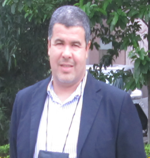 Pr. Ladjel BELLATRECHE is a full Professor at National Engineering School for Mechanics and Aerotechnics (ISAE-ENSMA), Poitiers, France, where he joined as a faculty member since Sept. 2010. He leads the Data and Model Engineering Team of the Laboratory of Computer Science and Automatic Control for Systems (LIAS). Prior to that, he spent eight years as Assistant and then Associate Professor at Poitiers University, France. He was a Visiting Professor of the Québec en Outaouais, Canada, a Visiting Researcher at the Department of Computer Science, Purdue University, USA and the Department of Computer Science of Hong Kong University of Science and Technology, China (1997-1999). His research interest focuses on Data and Model Management. He has co-authored more than 250 papers and received > 2516 citations (H-index=26). He serves as an Associate Editor of the Data & Knowledge (DKE) Journal, Elsevier, an Editorial Board of International Journal of Reasoning-based Intelligent Systems, Inderscience, Scalable Computing Journal, Springer and Computer Science and Information Systems Journal. He organized/co-organized numerous international and French Conferences and Workshops (ADBIS, DAWAK, ACM DOLAP, MEDI, IEEE SCC, IEEE Smart Data, WISE, EDA, BDA). He has acted as evaluator for funding agencies in Algeria, France, EU, Czech Republic, Kazakhstan and Netherlands. He actively contributes in promoting research in Africa and Asia, where he co-supervised several students. He co-found several conferences and workshops (MEDI, CIIA, OAIS).
Pr. Ladjel BELLATRECHE is a full Professor at National Engineering School for Mechanics and Aerotechnics (ISAE-ENSMA), Poitiers, France, where he joined as a faculty member since Sept. 2010. He leads the Data and Model Engineering Team of the Laboratory of Computer Science and Automatic Control for Systems (LIAS). Prior to that, he spent eight years as Assistant and then Associate Professor at Poitiers University, France. He was a Visiting Professor of the Québec en Outaouais, Canada, a Visiting Researcher at the Department of Computer Science, Purdue University, USA and the Department of Computer Science of Hong Kong University of Science and Technology, China (1997-1999). His research interest focuses on Data and Model Management. He has co-authored more than 250 papers and received > 2516 citations (H-index=26). He serves as an Associate Editor of the Data & Knowledge (DKE) Journal, Elsevier, an Editorial Board of International Journal of Reasoning-based Intelligent Systems, Inderscience, Scalable Computing Journal, Springer and Computer Science and Information Systems Journal. He organized/co-organized numerous international and French Conferences and Workshops (ADBIS, DAWAK, ACM DOLAP, MEDI, IEEE SCC, IEEE Smart Data, WISE, EDA, BDA). He has acted as evaluator for funding agencies in Algeria, France, EU, Czech Republic, Kazakhstan and Netherlands. He actively contributes in promoting research in Africa and Asia, where he co-supervised several students. He co-found several conferences and workshops (MEDI, CIIA, OAIS).
Talk 3: Take the Best of Big Data: Focus on Value & Variety
Pr Ladjel Bellatreche, ISAE-ENSMA, Poitiers University, Futuroscope, Poitiers, France
https://www.lias-lab.fr/members/bellatreche
Big data represents a new technology for managing data with high velocity, volume, variety and contributes to creating value for companies. Capturing all queries made on the company website or from customer support calls, emails or chat lines, regardless of their outcome, may have significant value in identifying emerging trends. The Big Data Era has largely contributed in accelerating the development strategic plans issued from governments and research organisms, coving the management, exploitation and analysis of these data by taking into account the different V's of Big Data. Among these plans, we can cite for instance the development of: (a) large-scale platforms (ex. data-clusters, distributed data clusters), (b) Software Defined Environments (SDE) (ex. IBM SDE), (c) advanced programming paradigms (ex. map-reduce, Spark, etc.), Data Analytics Tools (Rapid Miner, Google Fusion Tables, Solver), (d) Visualization tools (Google Chart, Tableau, Oracle Visual Analyzer), and (h) high quality and valuable Knowledge Bases (KB), constructed either by academicians (e.g., Cyc, DBpedia, Freebase, and YAGO) and industrials (e.g., Google Knowledge Graph, Facebook Knowledge Graph, Amazon Knowledge Graph, Credit Rating Agencies, Enterprise Knowledge Base, etc.). In this talk, we would like to foster the creation of a think tank dedicated to getting the best from Big Data V’s and the efforts related to it to revisit our research activities without compromising them. In this talk, we would like to share the experience conducted with our Model and Data Engineering Team of the LIAS Laboratory at ISAE-ENSMA, which aims at the design of data warehousing applications. Based on the literature, this design is based on two main approaches: (i) a supply-driven approach (also called data-driven) that starts with an analysis of operational data sources in order to identify all the available data and (ii) a user-driven approach (also known as requirement-driven or goal-orientated) which stems from the determination of the information requirements of different business users. Several studies and experiments show that resorting to these two approaches entails a high risk for companies, since some functional requirements cannot be satisfied. This is due to the lack of relevant data in sources. In parallel, reference studies have identified the crucial role of knowledge bases (KB) for analytical tasks, by offering analysts more entities (people, places, products, etc.). The availability of a huge, high quality valuable KB is an asset for data warehousing designers and decision-makers to construct/exploit a valuable data warehouse. So, faced with this situation, we here present a value-driven approach that revisits the traditional life cycle of the design of data warehouses, by considering KB as an external resource. These different phases are illustrated via the YAGO KB.
Keynote 4. Pr. Denis ROTHMAN

Denis ROTHMAN is the author cutting-edge artificial intelligence solutions that he is presently innovating using Python, Tensorflow, IBMWatson, Google’s Machine Learning platform, Amazon Web Services (AWS) along with other machine learning and deep learning tools.
Denis Rothman graduated from l'Université Paris-Sorbonne and l'Université Paris-Diderot, writing one of the very first word2matrix embedding solutions. He began his career authoring one of the first AI cognitive NLP chatbots applied as a language teacher for Moët et Chandon and other companies 30+ years ago. In recent research, Denis authored an IBM Watson – Deep Learning cognitive NPL Chatbot.
https://www.linkedin.com/pulse/did-you-miss-ai-parsing-train-denis-rothman
Through domain learning, Denis authored a profit orientated AI resource optimizing system written in Horn Clauses in Prolog for IBM and delivered to Agfa. The system was transposed into C++ for fabric optimization. It was first developed on one of Levi's production sites and then used by scores of major apparel brands.
Using a Conceptual Representation Learning approach he invented, Denis wrote and AI APS (Advanced Planning and Scheduling) solution based on cognitive patterns.
This AI software is used worldwide in the aerospace, train, energy, apparel and many other corporate fields. Designed initially as a cognitive AI program for IBM, it then went on to become a robust C++ Advanced Planning and Scheduling solution used to this day. He developed (Python) an experimental Automated Planning and Scheduling solution for unmanned vehicles, robots, bots, intelligent agents and more.
Artificial Intelligence by Example by Denis was published describing real-life case studies through cutting-edge machine learning and in-depth learning programs.
https://www.amazon.com/Denis-Rothman/e/B07DFRCJG8
https://www.packtpub.com/big-data-and-business-intelligence/artificial-intelligence-example
Talk 4: Artificial Intelligence as the Art of Increasing Productivity in Industries with Deep Learning
Denis ROTHMAN, Artificial Intelligence | Machine Learning | Deep Learning | Author & Speaker
Paris, France
https://www.linkedin.com/in/denis-rothman-0b034043/
Reinforcement Learning and Deep Learning have now entered their production phase of real-life applications. One of the consequences is the conjunction of two disruptive events that have begun to change the manufacturing world as we know it. First, in 2015 Google Deep Mind’s team produced a DeepRL system that assembled Deep Neural networks with Reinforcement Learning. This deep Q-network(DQN) performed better than professional game players adding its power to the existing chess engines no chess professional can beat anymore. The second event occurred when Amazon recently registered a patent for manufacturing on demand warehouses to produce its clothing in real-time. The combination of these two events has lead to numerous artificial innovations. This talk focuses on a research DQN that optimizes production flows in real-time. The system starts with a Convolution Neural Network(CNN) that classifies video frames of a manufacturing conveyor line. A Conceptual Representation Learning Meta-Model (CRLMM) designed by Denis Rothman embeds manufacturing concepts to interpret the output of the CNN. An optimizer decides how to re-plan production in real-time taking the CNN and CRLMM into account. The output of the optimizer is the reward matrix of Markov Decision Process(MDP) in the Bellman Equation version. This enhanced DQN system finally produces automatic decisions that optimize the production stations. Such systems show that artificial intelligence is moving from media hype to real-life production.
Keynote 5. Pr. Khalid MACHCHATE
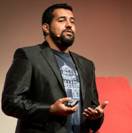 Pr. Khalid MACHCHATE is a Moroccan social development activist and serial techentrepreneur. He founded Skillearn and SOS Santé, IoT and Mobile solutions in Healthcare and Education, under the umbrella of his cutting edge Digital Transformation and Disruptive Technologies Consulting Group, K&W Technologies International, with major clients in Europe, Africa and Middle East. He trained, mentored and addressed more than 10 000 entrepreneurs in his efforts to achieve a 100 000 social innovators in Africa by 2020, holding Consultancy, Executive and Advisory Board positions in Global Shapers of the WEF, World Bank, Microsoft, JCI, UNICEF, NYU AD, and Startup Grind of Google For Entrepreneurs. Khalid is a Mobile and Embedded Systems engineer, University Professor, 14 International Technovation Awards Winner (Including Demo Africa, Challenge 22, Arabnet Startup Battle, Startup Open, Vivatech...), Ashoka Changemaker, and World Summit Awards national expert featured in BBC, Wamda, Sky News, GulfTimes, and others.
Pr. Khalid MACHCHATE is a Moroccan social development activist and serial techentrepreneur. He founded Skillearn and SOS Santé, IoT and Mobile solutions in Healthcare and Education, under the umbrella of his cutting edge Digital Transformation and Disruptive Technologies Consulting Group, K&W Technologies International, with major clients in Europe, Africa and Middle East. He trained, mentored and addressed more than 10 000 entrepreneurs in his efforts to achieve a 100 000 social innovators in Africa by 2020, holding Consultancy, Executive and Advisory Board positions in Global Shapers of the WEF, World Bank, Microsoft, JCI, UNICEF, NYU AD, and Startup Grind of Google For Entrepreneurs. Khalid is a Mobile and Embedded Systems engineer, University Professor, 14 International Technovation Awards Winner (Including Demo Africa, Challenge 22, Arabnet Startup Battle, Startup Open, Vivatech...), Ashoka Changemaker, and World Summit Awards national expert featured in BBC, Wamda, Sky News, GulfTimes, and others.
http://machchatek.azurewebsites.net/
Talk 5: Artificial Intelligence & IoT: An Intelligent Connected World
Pr Khalid MACHCHATE, Digital Transformation & Disruptive Technologies International Expert | TED Speaker | K&W Tech CEO | DEMO Africa Lion 2017
Rabat, Morocco
Artificial Intelligence (AI) and Internet of Things (IoT) are two extremely connected technology stacks. This keynote is to develop and answer the questions around How are they connected, Why, and What’s next for humanity through the coupled use of AI and IoT.
According to a recent survey from SADA Systems of IT professionals at large companies, Artificial Intelligence (AI) and Internet of Things (IoT) are the primary areas of focus for enterprise investments in new tech in 2018. Of the 500 IT professionals surveyed, 38% claimed that AI was the primary focus of emerging tech projects, with IoT and blockchain coming in at 31% and 10%, respectively.
IoT connected devices often generate the dizzying amounts of data necessary to train machine learning models. Of companies surveyed, more have IoT workflows already in production than AI. This is because a stable IoT and edge computing foundation are often prerequisites for enterprises to break ground on a machine learning model in the first place, though recent cloud PaaS rollouts of pre-built, adaptable ML models are shaking up the landscape for development.
As the rapid expansion of devices and sensors connected to the Internet of Things continues, the sheer volume of data being created by them will increase to a mind-boggling level. This data will hold extremely valuable insight into what’s working well or what’s not – pointing out conflicts that arise and providing high-value insight into new business risks and opportunities as correlations and associations are made.
However, the big problem will be finding ways to analyze the deluge of performance data and information that all these devices create. If you’ve ever tried to find insight in terabytes of machine data, you know how hard this can be. It’s simply impossible for humans to review and understand all of this data – and doing so with traditional methods, even if you cut down the sample size, simply takes too much time.
So spoken simply: AI can’t exist without IoT data influx training its models, and IoT applications will be either extremely simplistic and un-evolving in small data set scenarios, or even impossible on large ones without AI based pattern recognition and predictive analysis for effective use.
Outlines
● AI and IoT: a logical combination in perspective
● AI and the essence of IoT
● IoT and AI in the context of Industry 4.0
● AI and IoT in facility optimization
● AI and IoT in healthcare
● AI and IoT in manufacturing and beyond: robots and cobots
● AI and IoT: the brain and the body
● AI and IoT: the many technological innovations and levels
● AI, IoT and all the rest: The Industrial Innovation Futur
Keynote 6. Pr. ANNAPPA. B
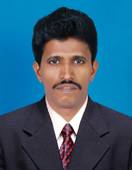 Dr. Annappa is currently serving as Professor at the department of Computer Science and Engineering, National Institute of Technology Karnataka Surathkal, INDA. He has more than 20 years of teaching and research experience. Annappa did his Ph.D. and M.Tech. in the department of Computer Science and Engineering at National Institute of Technology Karnataka Surathkal, Mangalore, INDIA. He graduated with B.E. in Computer Science and Engineering from Govt. B.D.T. College of Engineering, Davangere affiliated to Mysore University, INDIA.
Dr. Annappa is currently serving as Professor at the department of Computer Science and Engineering, National Institute of Technology Karnataka Surathkal, INDA. He has more than 20 years of teaching and research experience. Annappa did his Ph.D. and M.Tech. in the department of Computer Science and Engineering at National Institute of Technology Karnataka Surathkal, Mangalore, INDIA. He graduated with B.E. in Computer Science and Engineering from Govt. B.D.T. College of Engineering, Davangere affiliated to Mysore University, INDIA.
Talk 6: Cloud computing resource management in infrastructure as a service
Cloud computing resource management is an important aspect of concern for infrastructure-as-a-service (IaaS) due to dynamic and global resource demand of the applications running in data centers. Data center provides resources to the virtual machines (VMs), block storage devices, network devices etc. The resources should be allocated dynamically according to dynamic demands of an application. Over-provisioning results in wastage of resources and increases the overall cost. On the other hand, under-provisioning causes Service Level Agreements (SLA) violation and poor Quality of Service (QoS). Effective provisioning of resources in data center should guarantee best performance and optimized resource utilization to reduce cost. Therefore the allocated resources should be close to the current demand for applications as much as possible. Prediction of future resource demands of the applications enables optimization of the resource usage. Thus, the prediction of the application in different aspects such as workload or performance is an essential step before the resource provisioning. According to the prediction results, sufficient resources are allocated to the applications at the appropriate time in a way that QoS is ensured and SLA violation is avoided. This presentation gives fuzzy logic based application workload demand prediction. This prediction system is later used to detect hot-spots and need for migration. Thus resource provisioning is done locally or remotely using VM migration mechanism of virtual machine monitor (VMM). Finally, open research issues and future trends of the application prediction are discussed.
Committees
General Chair |
|
IDRISSI Abdellah |
|
Intelligent Processing Systems & Security Team (IPSS), Computer Science Department |
|
Faculty of Sciences of Rabat, Mohammed V University in Rabat |
|
Steering Committee |
|
BEGUM Shahina, Mälardalen University, Sweden |
IDRISSI Abdellah, FSR, Mohammed V University in Rabat |
BEN HASSINE Ahlem, ENSI, Tunisia & University of Jeddah, KSA |
KOUKAM Abderrafiaa, IRTES-SeT, UTBM, France |
BOUYAKHF EL Houssine, Mohammed V University in Rabat |
PIURI Vincenzo, University of Milan, Italy |
GALLAND Stéphane, IRTES-SeT, UTBM, France |
PRECUP Radu-Emil, University of Timisoara, Romania |
HERRERA Francisco, University of Granada, Spain |
SHAKSHUKI Elhadi M., Acadia University, Canada |
Technical Program Committee |
|
AISSA Sonia, INRS, University of Québec, Canada |
KAZAR Okba, Biskra University, Algeria |
AL KINANI Monagi, University of Jeddah, KSA |
KERSTIN Dautenhahn, University of Hertfordshire, UK |
ANNAPPA B., National Institute of Technology Karnataka, India |
KHALIL Ismail, Johannes Kepler University, Austria |
BADARD Thierry, University of Laval, Canada |
KHOULJI Samira, ENSA Tetouan, Morocco |
BALAS Valentina E., Aurel Vlaicu University of Arad, Romania |
KHOURI Selma, HNSCS, Algeria |
BASARAB Matei, Paris 13 University, France |
KOUKAM Abderrafiaa, IRTES-SeT, UTBM, France |
BEGUM Shahina, Mälardalen University, Sweden |
KRIAA Lobna, ENSI, University of Manouba, Tunisia |
BELDJEHEM Mokhtar, University of Ottawa, Canada |
LANG Jérôme, Paris Dauphine University, France |
BELLATRECHE Ladjel, ENSMA Poitiers, France |
LANGAR Rami, LIGM, UPEM, France |
BELOUADHA F. Zahra, Mohammed V University in Rabat |
LHANNAOUI Hanane, Mohammed V University in Rabat |
BEN ABDALLAH Hanene, University of Sfax, Tunisia |
LI Kuan-Ching, Providence University, Taiwan |
BENHASSINE Ahlem, ENSI, Tunisia & Univ. of Jeddah, KSA |
LIOTTA Antonio, Eindhoven University, Netherlands |
BEN OTHMAN Hajer, FCIT, University of Jeddah, KSA |
LORENZ Pascal, University of Haute Alsace, France |
BENBLIDIA Nadjia, Blida University Algeria |
MANIKANDAN R., SASTRA Deemed University, India |
BENHARKAT Nabila, INSA, Lyon, France |
MAHDAOUI Latifa, USTHB University, Algeria |
BENKHELIFA Elhadj, Staffordshire University, UK |
MARTHON Philippe, IRIT, Toulouse University, France |
BENLAMRI Rachid, Lakehead University, Canada |
MATSUBARA Shigeo, Kyoto University, Japan |
BENNANI Younès, Paris 13 University, France |
MEZIANE Abdelkrim, CERIST, Algeria |
BENTAYEB Fadila, Lyon 2 University, France |
Mobyen Uddin Ahmed, Mälardalen University, Sweden |
BERKANI Ahlam, Mohammed V University in Rabat |
MOUMEN Aniss, Alym Innovation, Morocco |
BOUAMAMA Sadok, FCIT, University of Jeddah, KSA |
MOURAKAMI Yohei, Kyoto University, Japan |
BOUCHBOUT Khoutir, USTHB University, Algeria |
MOUSSA Rim, Carthage University, Tunisia |
BOUFARES Faouzi, LIPN Paris, France |
NABLI Ahlem, Sfax University, Tunisia |
BOUGUILA Nizar, Concordia University, Canada |
NAÏT BAHLOUL Safia, Oran University, Algeria |
BOUKHALFA Kamel, USTHB, Algeria |
Naoki Fukuta, Shizuoka University, Japan |
BOUSSAID Omar, Lyon II University, France |
NEMICHE Mohamed, FS Agadir, Morocco |
BOUSTIA Narhimène, Saad Dahla University, Algeria |
OMARY Fouzia, FSR, Mohammed V University in Rabat |
BOUYAKHF Houssine, Mohammed V University in Rabat |
OUZINEB Mohammed, INSEA, Rabat, Morocco |
CABANES Guénael, Paris 13 University, France |
OMRI Kaouther, FCIT, University of Jeddah, KSA |
CHABCHOUB Yousra, ISEP, France |
OUACHA Ali, Mohammed V Univerity in Rabat |
CHAOUI Habiba, ENSA Kenitra, Morocco |
OUHBI Sofia, IUR, Rabat, Morocco |
CHAOUI Houda, ENSA Fes, USMBA, Morocco |
PASQUIER Philippe, Simon Fraser University, Canada |
CHAOUNI Naoual, Mohammed V University in Rabat |
PEREZ Gregorio Martinez, University of Murcia, Spain |
CHIKY Raja, ISEP, France |
PIURI Vincenzo, University of Milan, Italy |
DAOUDI Najima, ESI, Morocco |
PRECUP Radu-Emil, University of Timisoara, Romania |
DARMONT Jérôme, Lyon 2 University, France |
PUNTES Daniel Franco, UAB, Spain |
EL AMRANI Najiba, USMBA Universiy, Fes, Morocco |
RAHIM Rana, AUB, Lebanon |
EL MALLAHI Mostafa, USMBA, Fes, Morocco |
RAVAT Frank, Toulouse University, France |
EL MARRAKI Mohamed, Mohammed V University in Rabat |
RJOUB Abdoul, JUST, Jordan |
ELKHATTABI Noussaima, Mohammed V University in Rabat |
ROBBANA Riadh, INSAT, Tunisia |
ESSAAIDI Mohammed, Mohammed V University in Rabat |
RODRIGUEZ Sebastian, UTN, Tucuman, Argentina |
FACCHINI Alessandro, IDSIA, Switzerland |
ROSHAYU Mohamad, University of Jeddah, KSA |
FAVRE Cécile, Lyon 2 University, France |
ROTHMAN Denis, AI Expert, Paris, France |
FEKI Jamel, Sfax University, Tunisia |
SAHAMI Mehran, Stanford University, UK |
FERRAG Mohamed Amine, LRS, Guelma, Algeria |
SALANI Matteo, IDSIA, Switzerland |
FULVIO Mastrogiovanni, University of Genova, Italy |
SALMELIN Riitta, Aalto University, Finland |
FUSHI David Luigi, Bridging Consulting, UK |
SARKKA Simo, Aalto University, Finland |
GAHI Youssef, ENSA Kenitra, Morocco |
SCHIEX Thomas, INRA, Toulouse, France |
GALLAND Stéphane, SET, UTBM, France |
SCOTTI Fabio, Università Degli Studi di Milano, Italy |
GARGOURI Faiez, Sfax University, Tunisia |
SHAKSHUKI Elhadi M., Acadia University, Canada |
GHOZZI Faiza, Sfax University, Tunisia |
SHEIKH Iqbal Ahamed, Marquette University, USA |
GIONIS Aristides, Aalto University, Finland |
Shun Shiramatsu, Nagoya Institute of Technology, Japan |
GRAFFI Kálmán, Düsseldorf University, Germany |
SLAIMI Fatma, University of Marseille, France |
GROZAVU Nistor, Paris 13 University, France |
SNOUSSI Samia, FCIT, University of Jeddah, KSA |
HAMMAMI Moez, HIM, Tunisia |
SOREL Reisman, California State University, USA |
HANIFI Majdoulayne, IUR, Rabat, Morocco |
SOUDI RIFI Nada, ISCAE, Casablanca |
HANY Ammar, West Virginia University, USA |
SUYKENS Johan, KU Leuven, Belgium |
HARMELING Stefan, Düsseldorf University, Germany |
Takanobu Otsuka, Nagoya Institute of Technology, Japan |
HAYAR Aawatif, Hassan II University, Casablanca |
TAKAYUKI Ito, Nagoya University, Japan |
HERRERA Francisco, University of Granada, Spain |
TESTE Olivier, Toulouse University, France |
HIOUAL Ouassila, Khenchela University, Algeria |
TOGELIUS Julian, New York University, USA |
HLUCHY Ladislav, Institute of Informatics, Slovakia |
Tomohiro Nishida, Nagoya Institute of Technology, Japan |
HSAIRI Lobna, FCIT, University of Jeddah, KSA |
TRAGHA Abderrahim, Hassan II University, Morocco |
IDOUDI Hanene, ENSI, University of Manouba, Tunisia |
TU BAO Ho, JAIST, Japan |
IDRISSI Abdellah, Mohammed V University in Rabat |
VELIN Tonny, Answare, Spain |
IMRAN Ahmad, University of Windsor, Canada |
WALSH Toby, UNSW Sydney, Australia |
ISHIDA Toru, Kyoto University, Japan |
Wang Frank, University of Kent, UK |
JAFAR Alzubi, Al-Balqa Applied University, Jordan |
ZAHIR Jihad, UCAM, Marrakech, Morocco |
JARARWEH Yaser, JUST, Jordan |
ZARAKET Fadi, AUB, Lebanon |
JARRAR Mustapha, Birzeit University, Palestine |
ZBAKH Mustapha, Mohammed V University in Rabat |
JEGOU Philippe, Aix-Marseille University, France |
ZGHAL Sami, Jendouba University, Tunisia |
KABACHI Nadia, Lyon1 University, France |
ZURFLUH Gilles, Toulouse University, France |
Organizing committee |
|
ABIK Mounia, Mohammed V University in Rabat |
HAYAR Aawatif, Hassan II University, Casablanca |
BENABOUD Hafssa, Mohammed V University in Rabat |
HILAL Imane, ESI, Rabat, Morocco |
BENMILOUD Ibtissam, ENSMR, Rabat, Morocco |
OMARY Fouzia, FSR, Mohammed V University in Rabat |
EZZAHOUT A., Mohammed V University in Rabat |
OUM ELKHEIR Abra, Mohammed V University in Rabat |
FUSHI David Luigi, Bridging Consulting, UK |
OUZINEB Mohammed, INSEA, Rabat, Morocco |
REGISTRATION
Author* |
MAD (Euro) |
| Student | 3000 MAD (300 Euro) |
| Other | 3500 MAD (350 Euro) |
Non Author |
MAD (Euro) |
| Student | 1200 MAD (120 Euro) |
| Other | 2000 MAD (200 Euro) |
Gala Dinner |
500 MAD (50 Euro) |
* Please note that 150 Euros will be paid to the Editor.
Payment must be made by Bank Transfer, by October 20th, 2018, to the account opened at Crédit Agricole Maroc under IBAN number:
IBAN: 225.480.0673032036510117.04
SWIFT: CNCA MAMR
Each accepted regular paper or short paper MUST be uploaded by October 20th, 2018. The format for camera-ready paper is available on the conference website (http://www.mosaic-med.eu/misc18/).
A regular paper is limited to 6 pages, and a maximum of 2 extra pages. There’s a cost for each extra page.
A short paper is limited to 4 pages, and a maximum of 1 extra page.
If you wish to attend the conference, please fill out the following form: The form
SPONSORS
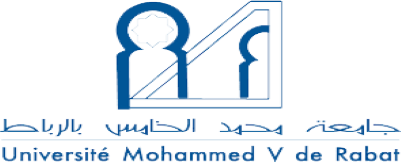
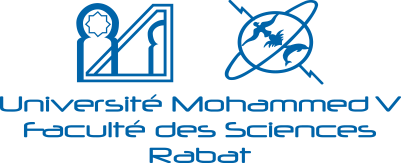

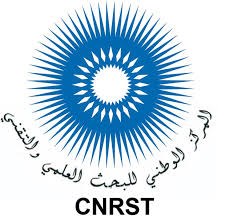


CONTACT US
Mohammed V University in Rabat
Faculty of Science,
4 Avenue Ibn Battouta, Rabat, Morocco